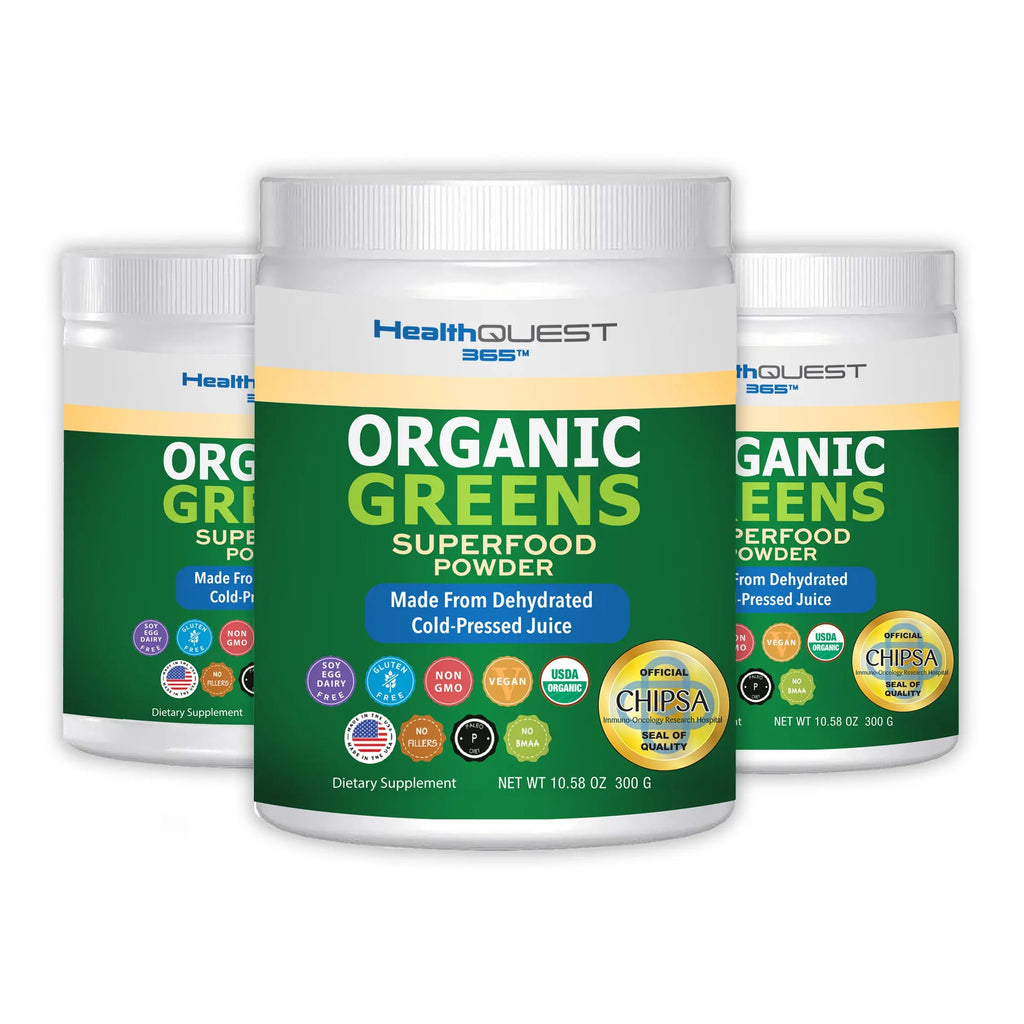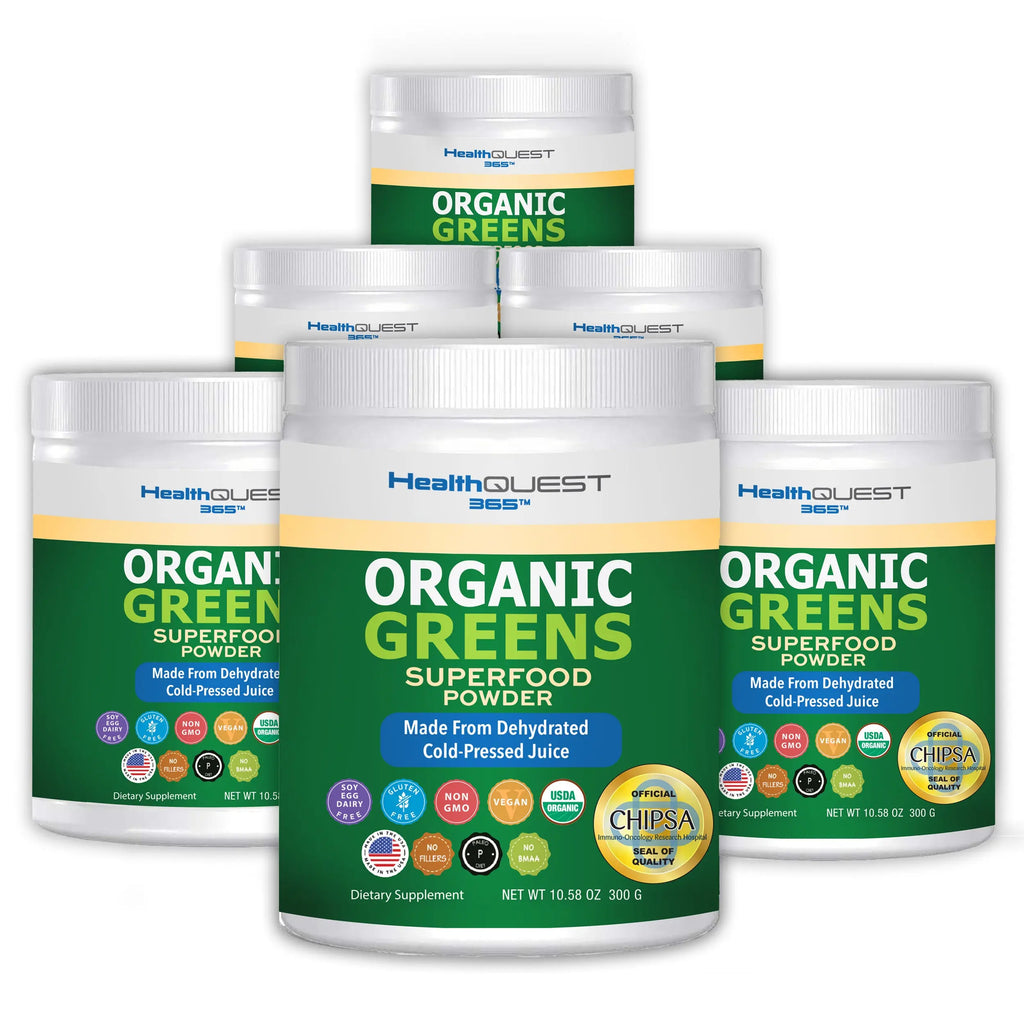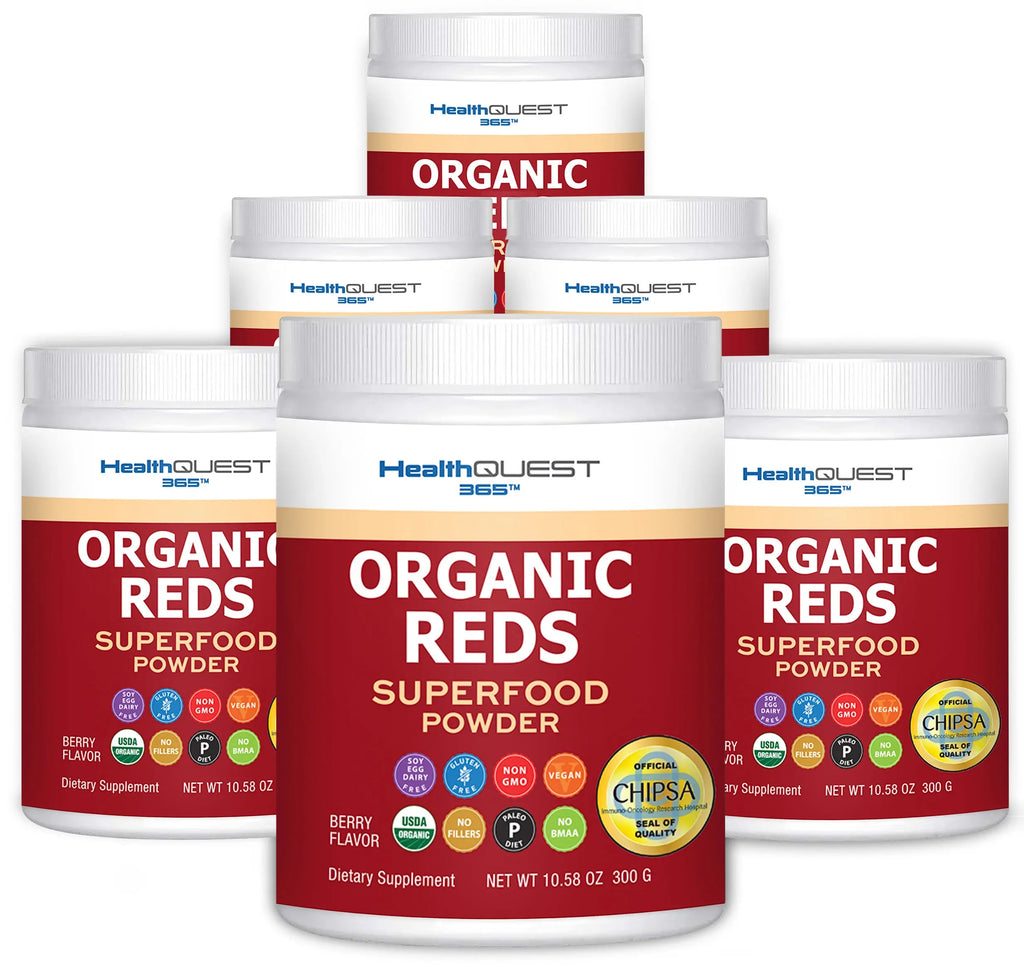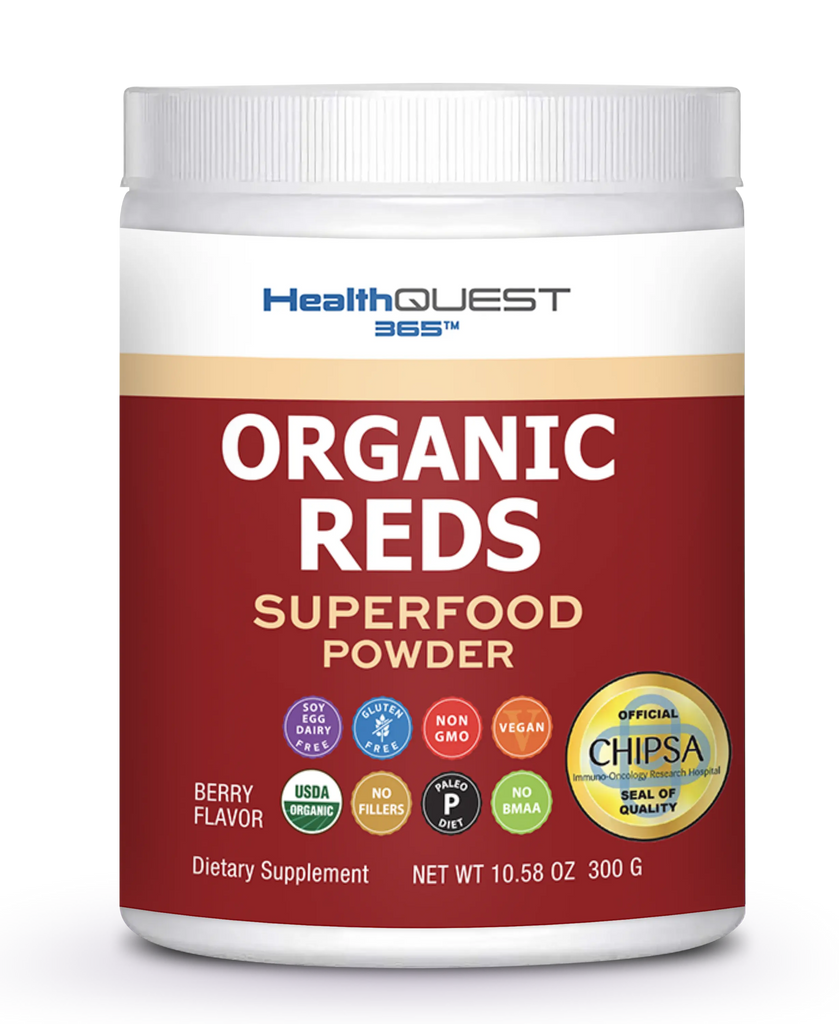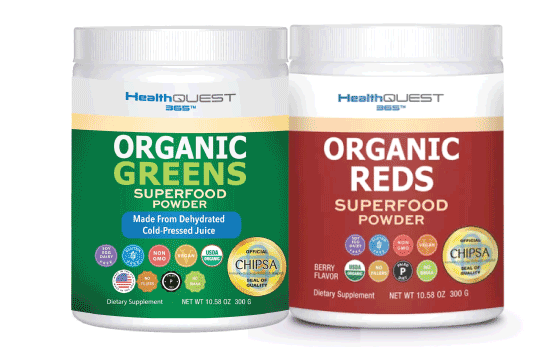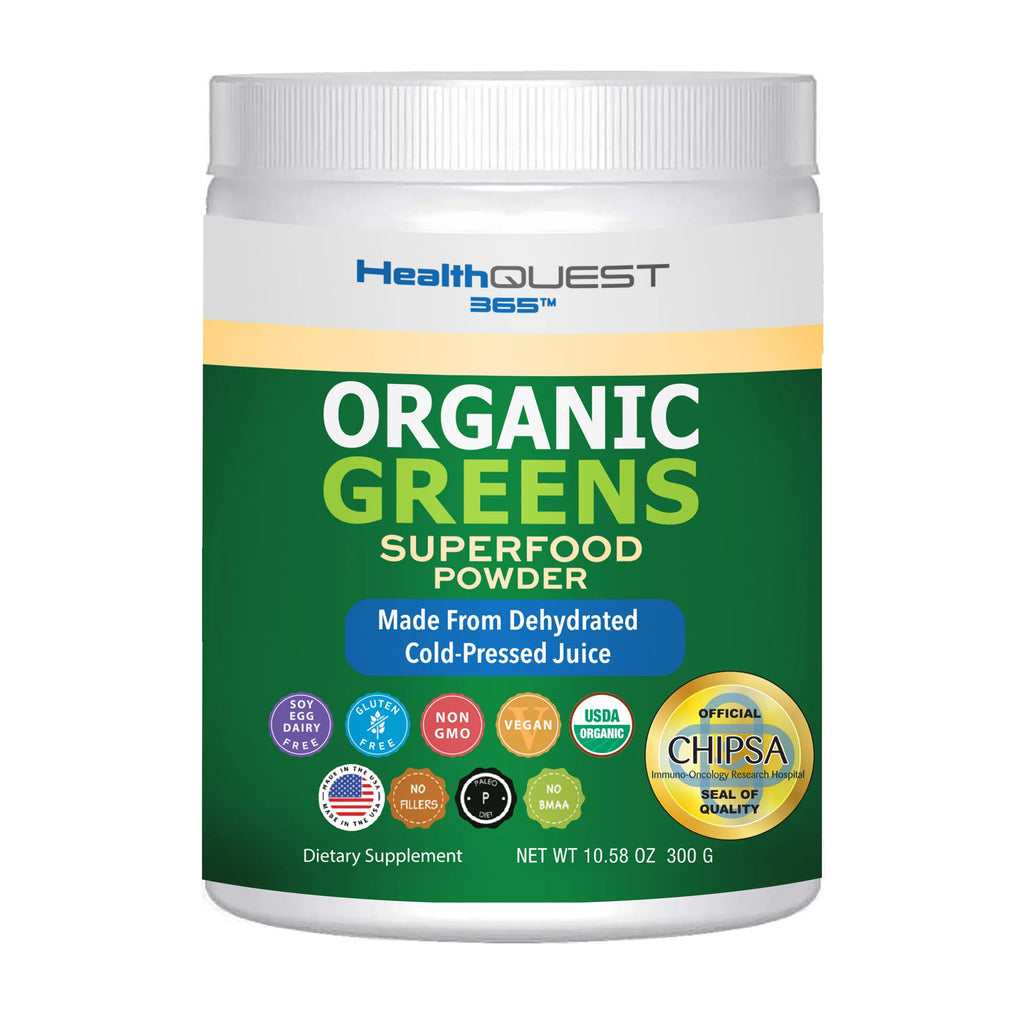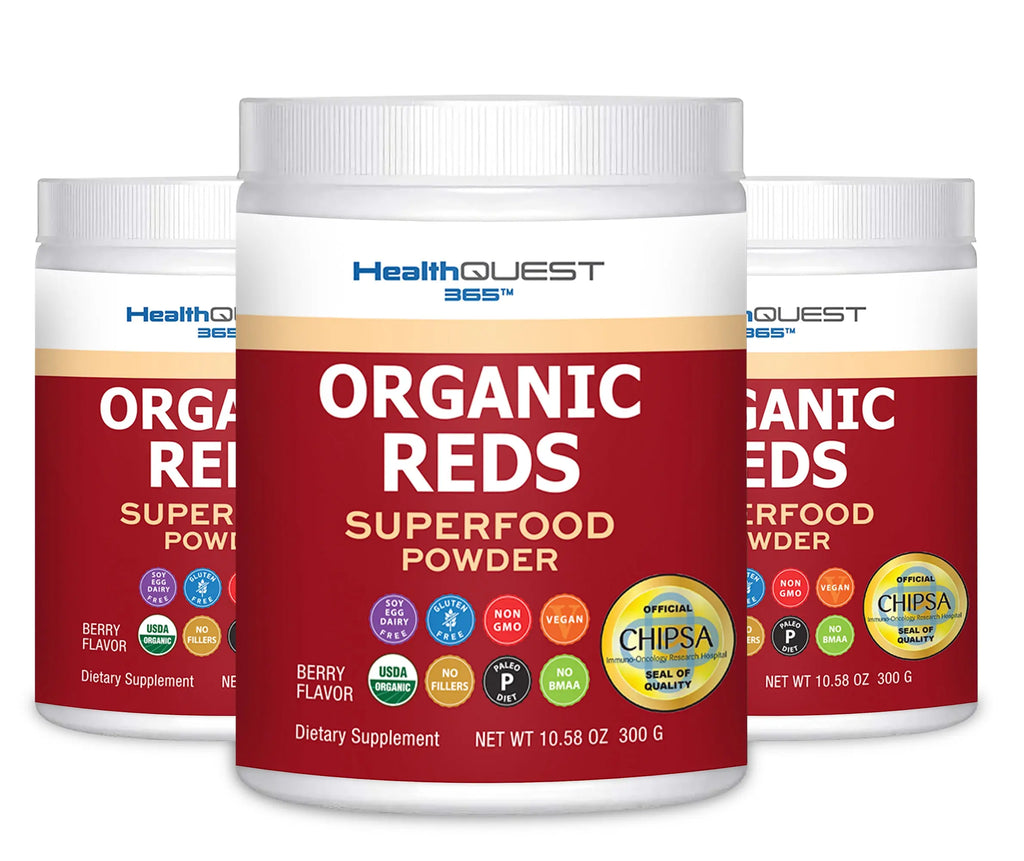It’s about health. It’s about healthy lifestyle. It’s about family™

5 Health Benefits of Flaxseeds - The Small-but-Mighty Superfood
Have you ever wondered how something so tiny can pack such a mighty punch? Well, look no further than the humble flaxseed, a small-but-mighty superfood that's ready to make waves in your daily diet.
With their nutty flavor and versatility, flaxseeds are the unassuming superheroes of nutrition, standing tall among the ranks of kale and quinoa.
But what exactly makes these little seeds so extraordinary? In this article, we'll reveal five flax-tastic health benefits that will have you reaching for these miniature marvels faster than you can say "chia who?"
So, sit back, relax, and let us take you on a journey through the world of flaxseeds—one where laughter, learning, and a healthier you are just a sprinkle away.

5 HEALTH BENEFITS OF FLAXSEED
REDUCING THE RISK OF CANCER
Flaxseeds are a powerful ally in the battle against cancer, thanks to their high concentration of lignans. These plant compounds have antioxidant and estrogen-regulating properties, which can help reduce the risk of hormone-sensitive cancers like breast, prostate, and ovarian cancer.
Additionally, flaxseeds are rich in omega-3 fatty acids, which have been linked to a reduced risk of colon cancer. So, by incorporating these tiny seeds into your diet, you're taking a proactive step towards cancer prevention.
FLAXSEEDS ARE FANTASTIC FOR DIGESTION
Don't let their size fool you—flaxseeds pack a significant fiber punch. Just two tablespoons contain around 4 grams of fiber, which can help regulate digestion and prevent constipation.
Moreover, the soluble fiber in flaxseeds forms a gel-like substance in the stomach, slowing down digestion and promoting nutrient absorption. This can also help control blood sugar levels and prevent spikes after meals, making flaxseeds a great addition to the diets of those with diabetes or insulin resistance.
IMPROVING CHOLESTEROL AND HEART HEALTH
Flaxseeds are a heart-healthy superfood, and for good reason. Their high levels of alpha-linolenic acid (ALA), an essential omega-3 fatty acid, have been shown to reduce inflammation and lower the risk of heart disease.
Furthermore, flaxseeds' soluble fiber content can help lower LDL ("bad") cholesterol levels, thus improving overall cholesterol balance and promoting cardiovascular health. So go ahead, give your heart some love with a daily dose of flaxseeds.
FLAXSEEDS CAN HELP REDUCE SKIN INFLAMMATION
If you're tired of dealing with red, irritated skin, flaxseeds might just be the solution you've been seeking. The omega-3 fatty acids found in flaxseeds have potent anti-inflammatory properties, which can help alleviate skin inflammation caused by conditions like acne, eczema, and psoriasis.
Plus, flaxseeds are a good source of vitamin E, an antioxidant that helps protect skin cells from free radical damage, keeping your skin looking youthful and radiant.
REDUCING HOT FLASHES
For women going through menopause, hot flashes can be a persistent and uncomfortable reality. Thankfully, flaxseeds might offer some relief. Research suggests that the lignans in flaxseeds have estrogen-like effects, which may help stabilize hormone levels and reduce the frequency and intensity of hot flashes.
To reap these benefits, try incorporating ground flaxseeds into your daily routine—smoothies, oatmeal, and yogurt are all great vehicles for this little superfood.
FLAXSEEDS ALSO CONTAIN HEART-HEALTHY, POLYUNSATURATED FATS.

Flaxseeds are not only small-but-mighty when it comes to their nutrient content, but they also boast a wealth of heart-healthy, polyunsaturated fats that can do wonders for your overall well-being.
These essential fats play a crucial role in maintaining optimal health, and incorporating them into your diet is easier than ever thanks to the versatility of flaxseeds.
Polyunsaturated fats are known for their ability to lower bad cholesterol (LDL) levels and raise good cholesterol (HDL) levels, which, in turn, helps prevent plaque buildup in the arteries.
This ultimately reduces the risk of heart disease and stroke, making flaxseeds a valuable addition to any heart-conscious diet.
One specific type of polyunsaturated fat found in flaxseeds is alpha-linolenic acid (ALA), an omega-3 fatty acid that has garnered widespread attention for its numerous health benefits.
In addition to promoting heart health, ALA has been linked to reduced inflammation, improved brain function, and even protection against certain types of cancer.
To maximize the benefits of these heart-healthy, polyunsaturated fats, it's important to consume flaxseeds in their ground form, as whole flaxseeds can pass through the digestive system undigested.
By grinding the seeds, you'll ensure that your body can fully absorb all the nutrients and reap the rewards of these powerful fats.
Incorporating flaxseeds into your daily routine is a breeze—simply sprinkle them onto your morning oatmeal, yogurt, or smoothie, or use them as a healthy addition to baked goods and salads.
With their subtle, nutty flavor and impressive nutrient profile, flaxseeds are a simple and delicious way to boost your intake of heart-healthy, polyunsaturated fats and enhance your overall well-being.
So why wait? Embrace the power of flaxseeds today and give your heart the love it deserves.

Give You ALL Our Best Workbooks
Get all the Best Workbooks + Action Guides from our expert
WHAT ABOUT FLAXSEED OIL? DO THEY ALSO HAVE BENEFITS?
Flaxseed oil, a natural byproduct of the mighty flaxseed, has garnered significant attention for its myriad health benefits and versatile applications. This golden-hued oil is packed with essential nutrients, making it a valuable addition to any health-conscious individual's pantry.
But what exactly does flaxseed oil have to offer, and how does it compare to its whole-seed counterpart?
Let's dive in and explore the benefits of this nutrient-rich elixir.
Like flaxseeds themselves, flaxseed oil is an excellent source of heart-healthy, polyunsaturated fats, particularly alpha-linolenic acid (ALA), an essential omega-3 fatty acid.
Consuming adequate amounts of ALA has been linked to a reduced risk of heart disease, lowered inflammation, and improved brain function. By incorporating flaxseed oil into your diet, you're providing your body with these essential fats that can help support overall health and well-being.
In addition to its heart-healthy fats, flaxseed oil also boasts potent anti-inflammatory properties. These can be particularly beneficial for individuals suffering from inflammatory conditions such as arthritis, as well as those looking to alleviate skin irritation caused by acne, eczema, or psoriasis.

While flaxseed oil does not contain the fiber and lignans found in whole flaxseeds, it still offers a concentrated source of ALA. This makes it a convenient option for those looking to quickly and easily boost their omega-3 intake without the need for grinding seeds or incorporating them into meals.
To harness the benefits of flaxseed oil, try using it as a salad dressing, drizzling it over steamed vegetables, or even adding a tablespoon to your morning smoothie.
Keep in mind, however, that flaxseed oil has a low smoke point, so it's best suited for cold or low-heat applications to preserve its nutritional value.

FREE "Mystery Gift"?
Let me stay in touch with you via email and as a thank you - get this FREE gift.. Something others paid over $1,000 for.
(True story)
SET REALISTIC GOALS
It’s important to set realistic goals that are achievable. Don’t try to cut too much too fast, as this can be difficult to maintain in the long run. Instead, start small. Focus on making healthy lifestyle changes that you can stick with over time.
FOCUS ON THE HEALTH BENEFITS
Finally, remember to focus on the health benefits of calorie restriction. It’s not just about weight loss. It can also help improve your overall health. Calorie restrictions can reduce your risk for chronic diseases too.
WHY IS IT BETTER TO CONSUME GROUND FLAXSEED INSTEAD OF WHOLE?
When it comes to reaping the full benefits of flaxseeds, choosing ground flaxseeds over whole ones is key. This is because the outer shell of whole flaxseeds is tough and difficult for our digestive system to break down.
As a result, consuming whole flaxseeds may lead to them passing through the body undigested, causing us to miss out on their valuable nutrients.

Ground flaxseeds, on the other hand, have been broken down into a more easily digestible form, allowing our bodies to fully absorb the wealth of nutrients they contain. These nutrients include heart-healthy omega-3 fatty acids, fiber, lignans, and various vitamins and minerals.
By consuming ground flaxseeds, you'll be able to take full advantage of their numerous health benefits, such as improved digestion, reduced inflammation, better heart health, and even cancer prevention.

To enjoy ground flaxseeds, you can either purchase pre-ground flaxseed meal or grind whole flaxseeds yourself using a coffee grinder or food processor.
Once ground, be sure to store flaxseeds in an airtight container in the refrigerator to maintain their freshness and prevent the oxidation of their delicate fats.
Incorporating ground flaxseeds into your daily routine is simple and delicious. Sprinkle them over yogurt, oatmeal, or smoothies, or use them as a nutritious addition to baked goods, salads, and even homemade veggie burgers.
With their subtle, nutty flavor and impressive nutrient profile, ground flaxseeds are an easy and effective way to boost your overall health and well-being.
To Wrap Up
In conclusion, flaxseeds are a small-but-mighty superfood that can provide a wide range of health benefits, from cancer prevention to improved digestion and heart health. By opting for ground flaxseeds over whole ones, you'll ensure that your body can fully absorb the essential nutrients these tiny seeds have to offer.
Furthermore, incorporating flaxseed oil into your diet can provide an additional source of heart-healthy fats and anti-inflammatory properties.
To take your nutrition game to the next level, consider adding Organic Greens to your daily flaxseed routine. Organic Greens are packed with essential vitamins, minerals, and antioxidants that can help boost your immune system, detoxify your body, and promote overall wellness.
By combining the power of flaxseeds with Organic Greens, you'll create a nutrient-dense synergy that will support your journey towards optimal health.
Embrace the mighty power of flaxseeds and Organic Greens today and unlock the full potential of these incredible superfoods. Your body, mind, and taste buds will thank you for it!
FREQUENTLY ASKED QUESTIONS
A simple step would be to evaluate your current lifestyle and health, identify areas of improvement, and gradually incorporate healthier habits.
Absolutely! Physical exercises such as jogging, brisk walking, or bodyweight exercises can be done without a gym.
A positive attitude is vital in healthy living as it reduces stress and encourages persistence in maintaining healthier habits.
A supportive environment can be built by including people who have similar health goals or by seeking the support of friends, family, or online health and wellness communities.
Regular check-ups help in detecting any potential health issues early and managing them effectively. They keep you updated about your overall health.

